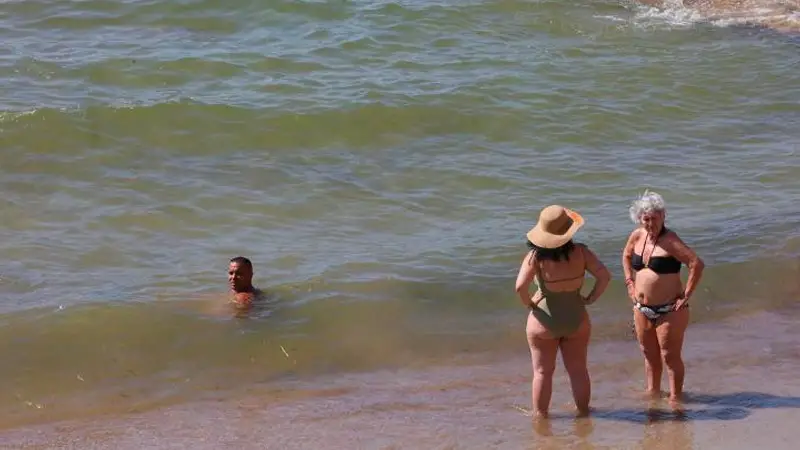Ibiza’s Bathing Water Quality: Current Challenges and Changes
The majestic beaches of Ibiza have long been one of the primary attractions for tourists around the world. However, recent reports indicate that there might be growing concerns regarding the quality of bathing water on the island. Here, we dive into the detailed account of the current situation and factors affecting the water quality in Ibiza.

Beaches such as sa Caleta or Cala Jondal have been questioned for the quality of the water. | Moses Cup
Historical Excellence, Present Challenges
Ibiza, part of the Balearic Islands, once boasted a commendable water quality level. A decade back, approximately 93% of the water samples from Ibiza beaches secured an ‘excellent’ rating from the Government’s Environmental Health department. By 2019, however, only 76% of beaches maintained this status. A more alarming statistic reveals that last year, a mere 51% of the beaches on the island achieved this ranking.
In a broader context, while the Balearic Islands as a whole experienced a reduction in water quality levels (from 93% to 70% over a decade), Ibiza’s situation seems more pressing.
You may also be interested:
- Ushuaïa Tower Reimagined as The Unexpected Ibiza Hotel
- Top Picks for Best Hotels for Singles in Ibiza 2025
- Destino Five Ibiza: Pacha Resort Rebrands for 2025
Factors at Play
1. Infrastructure and Overcrowding:
Mercedes Alemany, the head of the Environmental Health service, identifies the condition of water purification systems and the state of supply networks as major culprits. The continuous influx of tourists and the growing population on the island strain these systems. Infrastructure, hence, requires not only maintenance but also an upgrade to accommodate the increasing number of people.
2. Climate Change:
Alemany also points towards the rising sea temperatures, a likely outcome of global climate change, as another factor contributing to the degradation of water quality.
3. Increased Incidents:
In 2023 alone, 13 significant incidents or breaches have been recorded in Ibiza that negatively impacted the water quality. Such incidents have historically been higher in Ibiza compared to other Balearic Islands, particularly in the municipalities of Sant Antoni and Sant Josep.
Sampling, Monitoring, and Results
Consistent monitoring is a crucial aspect of ensuring safe bathing water quality. Around 40 sections of the Pitius coast undergo periodic sampling throughout the summer. While no beach has been declared of insufficient quality yet, some ‘black spots’ or problem areas do appear annually.
Adhering to European regulations, water quality checks occur during the peak bathing season, which extends from May 8 to October 5. Technicians elucidate that samples are taken at a depth of one metre, submerged further by 20 centimetres.
The primary contaminants looked for during laboratory testing include the Escherichia coli bacteria and intestinal Enterococci. High levels of these bacteria lead to temporary bans on bathing until the situation improves.
Silver Linings and Future Prospects
The Alliance for Water of Ibiza and Formentera provides a ray of hope, indicating a “slight improvement” in Ibiza’s water quality in 2022. The Ibiza 2022 Sustainability Report presented 21 bathing areas graded as excellent, showing a minor increment from the previous year. Although certain beaches like Cala Bassa and Portinatx experienced a dip in quality, others, such as Cala Pada, marked an improvement.
Water Quality in Ibiza: Conclusion
While challenges persist, the focus on the water quality in Ibiza is unyielding. With consistent monitoring, awareness, and infrastructural investments, Ibiza can reclaim its legendary water purity.




Leave a Reply